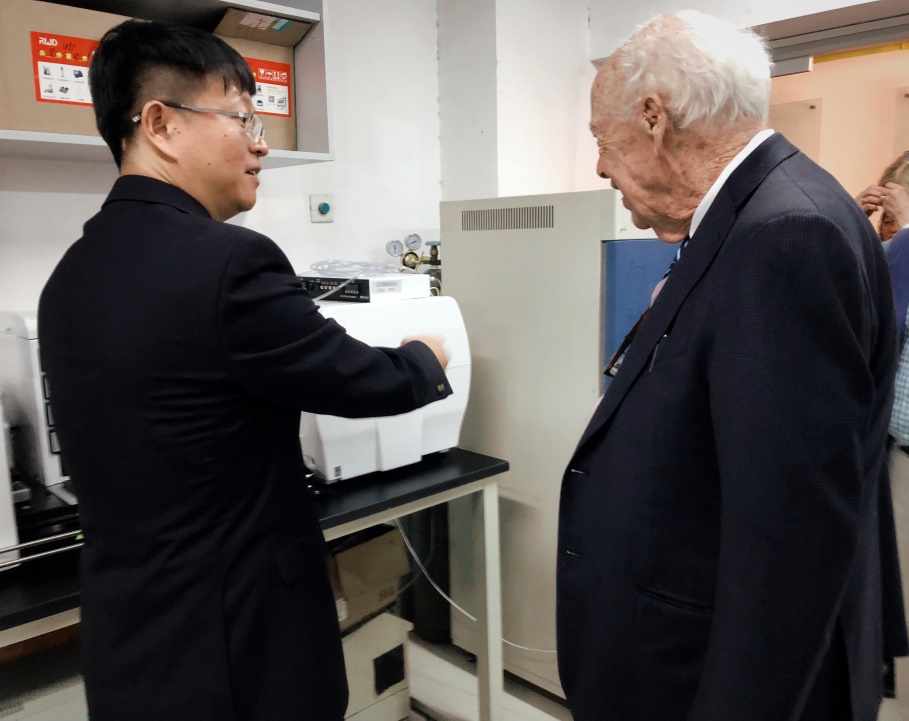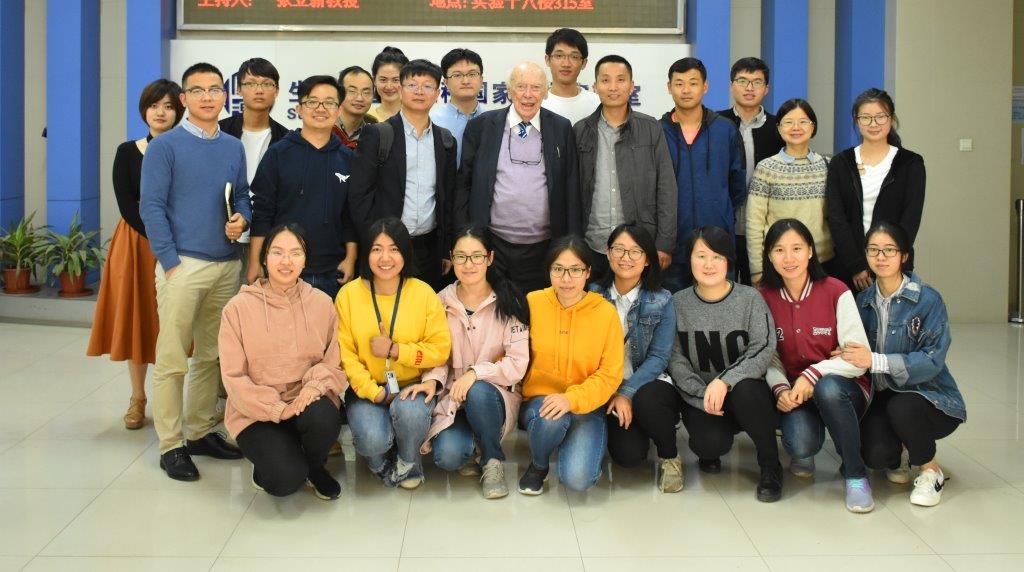On October 18, Prof. James D. Watson, the Nobel laureate, "father of DNA", came to visit Prof. Yi Yang’ laboratory in School of Pharmacy in East China University of Science and Technology (ECUST). Prof. Watson is a world-renowned scientist known as "Einstein of the scientific community of life" and "Father of DNA”. In 1953, he co-authored with Prof. Francis Crick published the academic paper proposing the double stand of the DNA molecule. During his nearly 70 years of research, Watson has achieved remarkable accomplishment in molecular biology and biomedicine. He was a professor and director at Harvard University, The Cold Spring Harbor Laboratory, and was awarded honorary titles of more than 30 world-renowned universities — including Harvard University, Oxford University and Cambridge University. Prof. Watson has long been committing to precision medicine research for cancer and developing cheap and effective anticancer drugs.
Prof. Watson firstly visited the State Key Laboratory of Bioreactor Engineering at ECUST and the laboratory of Prof. Yi Yang. Then Prof. Yi Yang gave a talk on the discovery of anticancer drugs using advanced cell redox metabolic fluorescence probes. Prof. Watson and Prof. Yang had in-depth discussions on the several scientific issues and cooperation matters related to the utilization of reactive oxygen species as a cancer treatment strategy. Dr. Maoye Ji, the CEO of the Cold Spring Harbor Asia, Prof. Gonghua Song, Dean of the School of Pharmacy, and Prof. Yuzheng Zhao also participated in the discussion. After the report, Prof. Watson took a cordial photo with the graduate students and young teachers and encouraged them to work hard in their research of defeating cancer.
An important purpose of Watson's visit to ECUST was to give a boost of “Watson Cell Metabolism Research Center” in Suzhou. As he introduced, "Watson Cell Metabolism Research Center" will be committed to developing technology of molecular probes for detecting cell metabolites, as well as single-cell or living metabolic analysis, and to provide technical methods and services for the global biomedical and bioengineering research.



